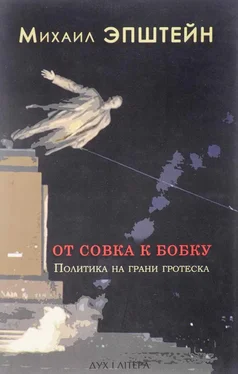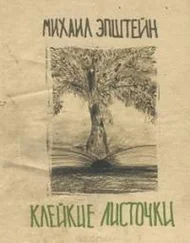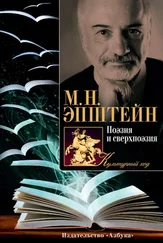From Homo Sovieticus to the Bobok Character: Politics on the Edge of the Grotesque
This collection of 40 essays is inspired by the dramatic events of 2014–2015 in Russia and Ukraine and explores their philosophical and cultural meaning. The book focuses on the grotesque and paradoxical features of Russia’s national character, the models of its historical evolution and the roots of its recurrent confrontation with the West. A number of these essays have been published in leading Russian periodicals, such as «Novaya gazeta» and «Nezavisimaia gazeta» in 2014–2015, and have provoked heated debates. The author’s approach to contemporary history is based on philosophical analysis and metaphorical parallels with Russian literature, in particular, Alexander Pushkin, Nikolai Gogol, and Fyodor Dostoevsky, Alexander Blok, and Thomas Mann.
The book describes the transition from Sovok (Homo Sovieticus in Russian slang) to a new post-Soviet character anticipated in Dostoevsky’s short story «Bobok» (1873). In this story, the recently deceased entertain themselves in the graveyard by revealing all the shameful details of their earthly lives. The nonsense word «bobok» indicates their desire «to strip and be naked».
The course of the past thirty years, from Gorbachev s perestroika to Putins new «world order,» can be described as the transition from Sovok to bobok, or from a Soviet mentality to a bobok mentality Homo Sovieticus was an arrogant and insolent character but still full of ideals and moral exhortations such as equality, brotherhood, and the need to struggle for a better future. Bobok is devoid of these noble illusions and vast historical perspectives. He only claims one right which is described in Dostoevsky’s Devils: «If we proclaim a right to dishonor, everyone will come running to us…» Sovok, in his simplicity, assumes that the universe, like a loving mother, should protect him, even admire his rudeness as an expression of childish playfulness and spontaneity. Bobok, by contrast, is a bitter Sovok, who has suddenly realized he is an orphan. The universe will never give him the love he believes he deserves. Bobok is an aggressive and depressive Sovok, who expects nothing good from the world and responds with panphobia — suspicion, fear and hatred of anyone who is different. He is eager to detect enemies and to deliver the first demolishing blow. While decomposing in his historical grave, he threatens the world with Bobocalipse.
What is the root of the Russian tragedy? The Russian nation has not shown itself to be sufficiently independent and creative to build its own distinctive civilization that could compete with the great civilizations of the West and East. And yet it is too vast and ambitious to accept an auxiliary role and to become a part of other civilizations. Therefore, Russia is constantly rebelling against the world order although she cannot create a decent order even within herself. The protagonist of Dostoyevsky’s Notes from Underground is endowed with an acute consciousness of his «self,» but at the same time, he lacks creative talent and thus wastes his life by causing major and minor mischief to others, and consequently hurting himself. Russia is an «underground» state in the Dostoevskian sense, and in 1917 she was the first to push the revolutionary «underground» to the heights of power. Since then the behavior of Russia on the world arena has replicated the behavior of the underground man. Russia challenges and teases the world, abusing and humiliating others, but it is unable to create its own civilization, which might attract other nations in good faith. Russia torments herself and others — and this is her existential mode, her way of reminding everyone (and herself) that she is alive. Without this torture and suffering, the country would become a lifeless desert; misery only animates and inspires it, as well as its greatest artists, from Gogol, Dostoevsky, and Tolstoy to Platonov and Solzhenitsyn.
Biografical Note
Mikhail Epstein is Samuel Candler Dobbs Professor of Cultural Theory and Russian Eiterature at Emory University (USA). In 2012–2015, he was Professor of Russian and Cultural Theory and Founding Director of The Centre for Humanities Innovation at Durham University (UK). His research interests include new directions in the humanities and methods of intellectual creativity, contemporary philosophy, postmodernism, Russian literature, philosophy and religion of the XXth-XXIst cc., and language evolution and neologisms. He has authored 32 books and more than 700 articles and essays, many of which have been translated into some 20 languages. He was awarded the Liberty Prize for his «outstanding contribution to the development of Russian — U.S. cultural relations’ (New York, 2000); the International Essay Contest prize (Weimar/Berlin, 1999); The Social Innovations Award (Institute for Social Inventions, London, 1995), and the Andrei Belyi Prize (St. Petersburg, 1991).
ПЕРВЫЕ ПУБЛИКАЦИИ [60] Публикации даны в хронологическом порядке. У них могут быть другие заглавия, чем в книге.
О Россиях. «Новое Русское слово», 18. 1. 1991, С. 10–11.
Ирония стиля: Демоническое в образе России у Гоголя. «Новое литературное обозрение», 19 (1996), С. 129–147; Родина-ведьма. Демонология России у Гоголя и Блока. «Частный корреспондент», 3 дек. 2015.
Что осталось от Ленина. «Огонек», 1.11. 2010
Масштаб и вектор: О тотальгии Дмитрия Быкова. «Независимая газета», 27.10.2011
Родина и отечество. «Частный корреспондент». 4.11.2011
«Итак, хвала тебе, Чума…» Можно ли отделить больного от болезни? «Новая газета», 10.11. 2011
О России с надеждой. «Новая газета», 135 (1838), 2. 12. 2011, С. 15–16.
Да здравствует поликратия! О многовластии. «Независимая газета». Ex Libris. 5. 4. 2012
Каинов грех. «Частный корреспондент». 12. 3. 2013
От атеизма к теократии? «Частный корреспондент». 30.6.2013
Свет и клир. Для чего российскому обществу нужна секуляризация? «Новая газета», 10.2. 2014
Ни слова об Украине. Заметки августа 2008. «Частный корреспондент», 16.3. 2014
Панфобия. «Сноб», 17.3.2014
Английские студенты о Достоевском и Крыме. «Сноб», 22.3.2014
Как выжить, низвергаясь в Мальмстрем. «Сноб», 8.4.2014
В двух словах о России. «Частный коррепондент», 27.5.2014
Новороссия или Новомосковия. «Сноб», 31.7.2014
Право на бесчестие. «Сноб», 24.8.2014
Психократия. «Сноб», 6.11.2014
Мирозлобие. «Сноб», 10.11.2014
Виды патриотизма. «Сноб», 19.11.2014
От совка к бобку. 2014-й год в предсказании Достоевского. «Новая газета», 5.12. 2014
Читать дальше









